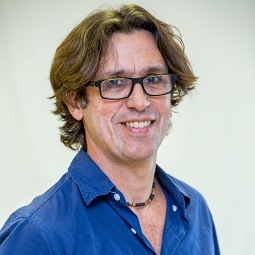Ecoengineering in ports to safeguard coastal and marine ecosystem services
The development of marine infrastructure is critical in driving national and global economies. However, it is increasingly clear that it also needs to benefit the natural environment to support ecosystem services that coastal communities rely on. This is particularly true of ports, and nature-positive engineering can play a significant role in increasing the sustainability profile of ports.
The development of marine infrastructure is critical in driving national and global economies. However, it is increasingly clear that it also needs to benefit the natural environment to support ecosystem services that coastal communities rely on. This is particularly true of ports, and nature-positive engineering can play a significant role in increasing the sustainability profile of ports.
CSIR principal scientist Steven Weerts participated in the first of five expert roundtables for the Lloyd’s Register Foundation Foresight Review on Nature-positive Engineering, conducted by the International Coalition for Sustainable Infrastructure.
The roundtable, held in November 2024, was co-convened by the Global Center on Adaptation, the University of Nairobi and the United Nations Office for Project Services. It focused on coastal protection and adaptation, addressing the growing risks faced by coastal communities, ports and shipping to ensure that future development in this sector aligns with biodiversity conservation and pollution reduction. “We came together as a group of scientists, engineers, planners, community conservationists and finance specialists to explore how engineering practices can protect, restore, and enhance natural ecosystems, focusing on coastal and marine environments,” says Weerts.
An assortment of presentations, best practice case studies, and deliberations were held that explored how current nature-based engineering can be upscaled and mainstreamed. Weerts presented on ecological perspectives of Nature-Positive Engineering in West Indian Ocean Ports, using some relevant case studies that the CSIR has been involved in. These included the Ports of Richards Bay and Durban, which have highly modified their original estuaries. However, these and future developments, if correctly designed, can facilitate ongoing and improved estuarine biodiversity and ecosystem services.
“When nature is considered in the development plans of ports by including ecological design criteria, natural assets can remain protected and continue delivering ecosystem services on which people and biodiversity depend,” Weerts says. “Indeed, new developments in port, either improvement or expansion projects, can provide an opportunity to increase biodiversity and ecosystem services. Early planning and purposeful design are key.”
This message was well received by over 30 workshop participants, including representatives from the World Bank and port authorities from West and East Africa. The presentation highlighted the importance of guidelines and toolkits to guide ecological and sustainability aspects, and testing and certification of technologies for validation of engineering performance. The CSIR has excelled in these areas in recent years in local, regional and international project applications.
The next expert roundtable will take place during the 2024 G20 Rio de Janeiro summit. Following that, roundtables are planned in Belem, Brussels, London and Singapore. “It’s exciting to see and be part of these initiatives, which are an indication of engineering with nature principles being adopted globally and growing recognition of the importance of aligning natural and engineering processes to address the triple planetary crisis. In the coastal systems and port sector, especially, the CSIR has a significant role to play on the continent.”
Kenya on 1 November 2024.
Credit: International Coalition for Sustainable Infrastructure


